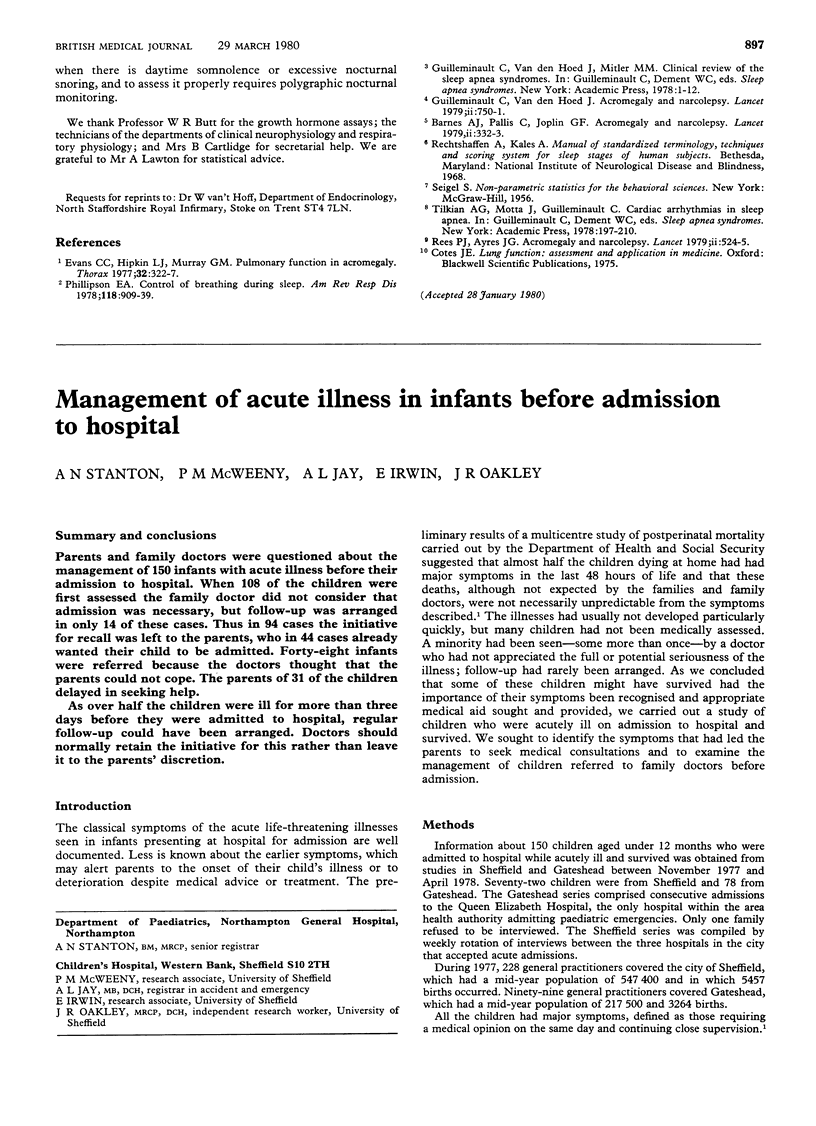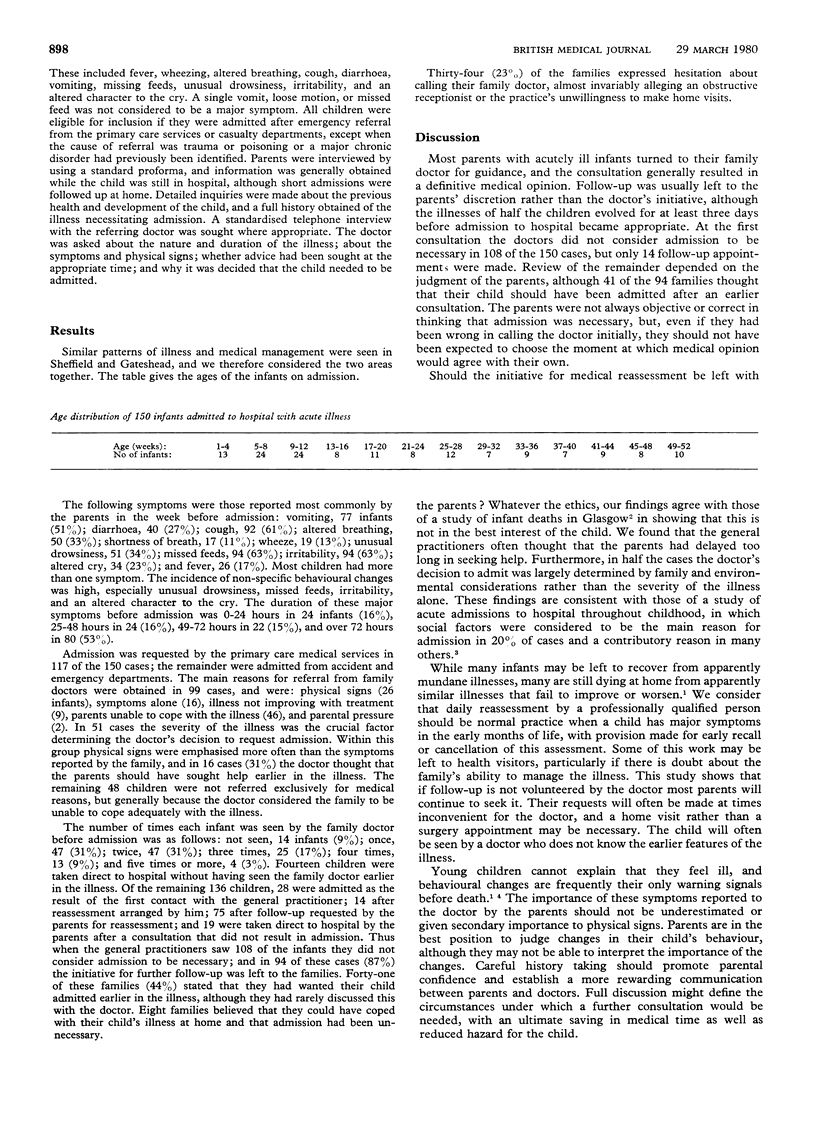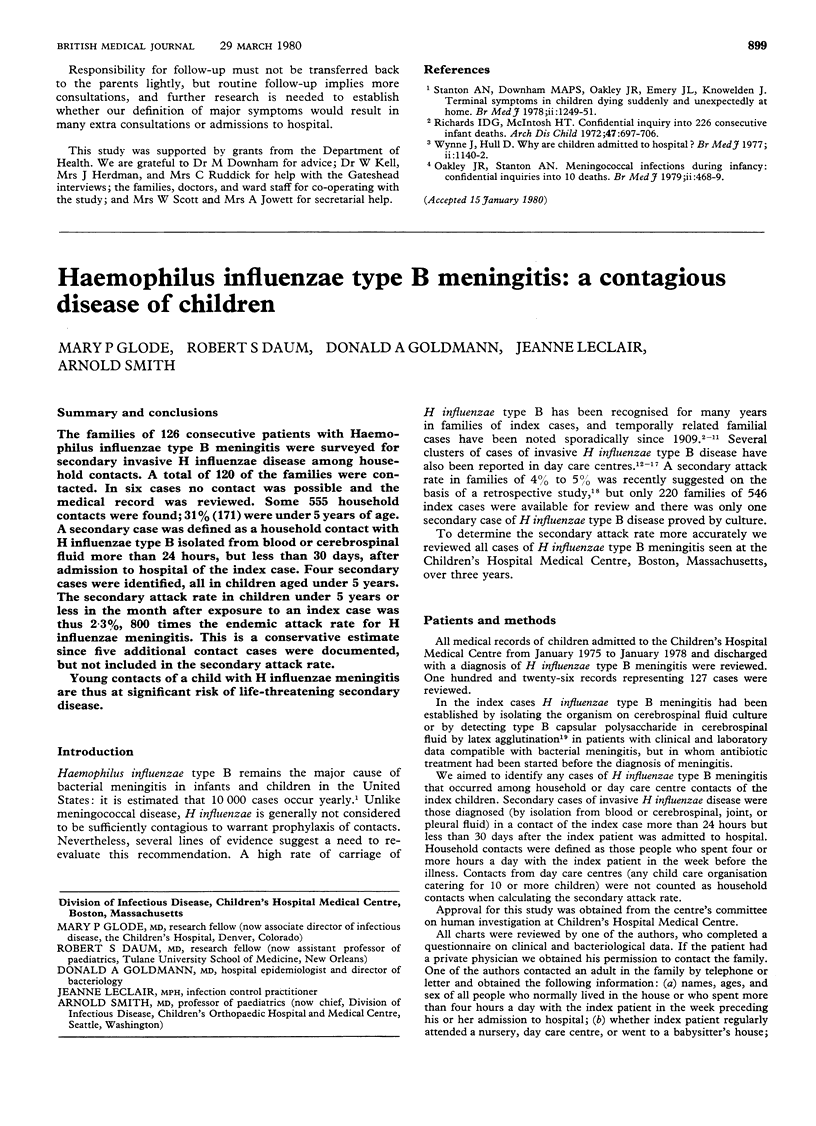Abstract
Parents and family doctors were questioned about the management of 150 infants with acute illness before their admission to hospital. When 108 of the children were first assessed the family doctor did not consider that admission was necessary, but follow-up was arranged in only 14 of these cases. Thus in 94 cases the initiative for recall was left to the parents, who in 44 cases already wanted their child to be admitted. Forty-eight infants were referred because the doctors thought that the parents could not cope. The parents of 31 of the children delayed in seeking help. As over half the children were ill for more than three days before they were admitted to hospital, regular follow-up could have been arranged. Doctors should normally retain the initiative for this rather than leave it to the parents' discretion.
Full text
PDF


Selected References
These references are in PubMed. This may not be the complete list of references from this article.
- Oakley J. R., Stanton A. N. Meningococcal infections during infancy: confidential inquiries into 10 deaths. Br Med J. 1979 Aug 25;2(6188):468–469. doi: 10.1136/bmj.2.6188.468. [DOI] [PMC free article] [PubMed] [Google Scholar]
- Richards I. D., McIntosh H. T. Confidential inquiry into 226 consecutive infant deaths. Arch Dis Child. 1972 Oct;47(255):697–706. doi: 10.1136/adc.47.255.697. [DOI] [PMC free article] [PubMed] [Google Scholar]
- Stanton A. N., Downham M. A., Oakley J. R., Emery J. L., Knowelden J. Terminal symptoms in children dying suddenly and unexpectedly at home. Preliminary report of the DHSS multicentre study of postneonatal mortality. Br Med J. 1978 Nov 4;2(6147):1249–1251. doi: 10.1136/bmj.2.6147.1249. [DOI] [PMC free article] [PubMed] [Google Scholar]
- Wynne J., Hull D. Why are children admitted to hospital? Br Med J. 1977 Oct 29;2(6095):1140–1142. doi: 10.1136/bmj.2.6095.1140. [DOI] [PMC free article] [PubMed] [Google Scholar]



